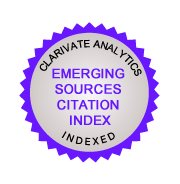FACTORS AFFECTING EFFECTIVE UNIVERSITY INDUSTRY COLLABORATION DURING THE DEVELOPMENT RESEARCH STAGE
DOI:
https://doi.org/10.32890/ijms2021.28.2.6Abstract
In Malaysia, collaboration between university and industry is still limited. This requires improvement of current practices in developing effective collaborations. However, there are still projects that fail to deliver, and it is quite challenging and difficult to assess the recent successful university-industry collaboration projects. In light of this, background problem, the present research was aimed at identifying the factors which hindered effective collaboration between university and industry, especially during the development research stage. The objective of this study was to determine the relationship between the success factors and the effectiveness of collaborative projects during the development, research stage. This study adopted a quantitative research method. Survey questionnaires were distributed among researchers involved in a collaborative project funded by a government grant scheme. The results showed that reward had a positive and significant relationship with both process- and outcome-related criteria. Meanwhile, financial support had a negative and significant relationship with a process-related criterion. The findings can be used as guidelines for collaboration stakeholders to develop an effective collaborative project.
Downloads
References
Additional Files
Published
Issue
Section
License
Copyright (c) 2022 International Journal of Management Studies

This work is licensed under a Creative Commons Attribution 4.0 International License.













